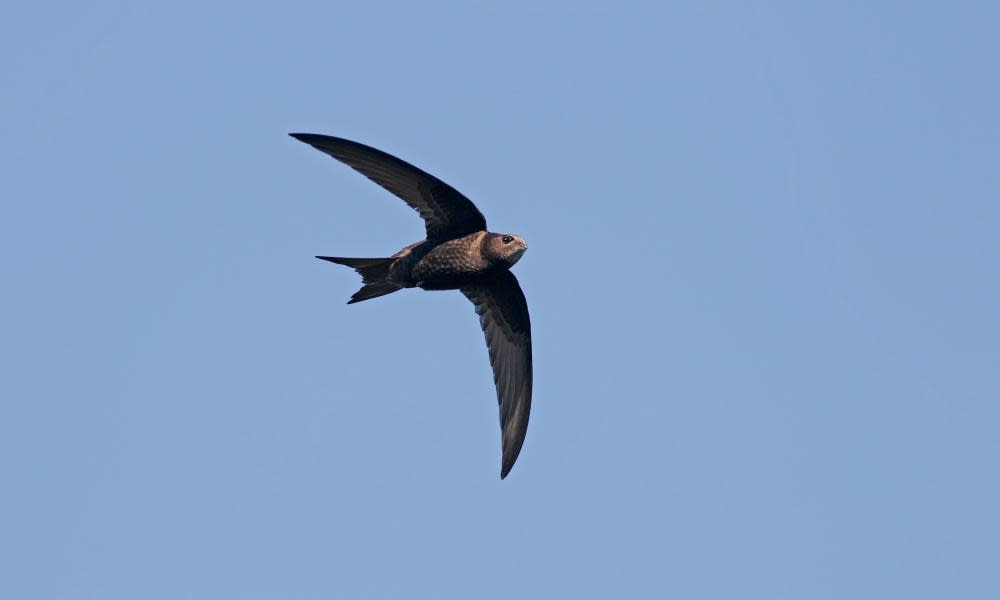Why migratory birds have been late to UK skies this spring

One swallow does not, proverbially, make a summer – and this year, birders all over the UK were struggling to see any at all, at least until the last week of April. This was largely because of a run of persistent north-easterly winds, along with bad weather in southern Europe, which delayed the arrival of many long-distance migrants from sub-Saharan Africa.
The urban equivalent of the largely rural swallow – the swift – was also very late, at least compared with recent years; in London, the main arrival of swifts occurred in the first week of May, when they could finally be heard screaming above the city’s rooftops.
Spring migration is a prolonged affair: short-distance migrants such as the blackcap and chiffchaff, which mainly overwinter in Spain and north Africa, have been singing in my Somerset garden since March; but spotted flycatchers, which spend our winter in west Africa, have yet to arrive.
One major fear is that as springs shift earlier and earlier, birds may struggle to adapt to this dramatic change. The long-term study of great tits in Wytham Woods near Oxford showed that these resident birds are now laying their eggs three weeks earlier than they used to; but that option is simply not available for many migrants, which time their return to the UK using changes in light, rather than temperature.

 Yahoo News
Yahoo News 
